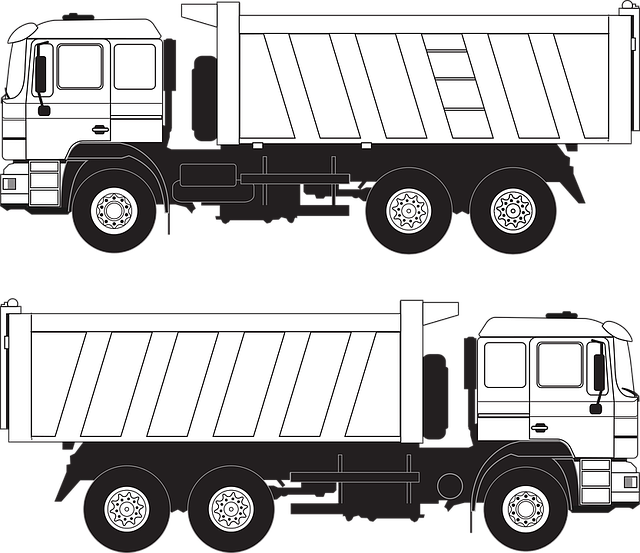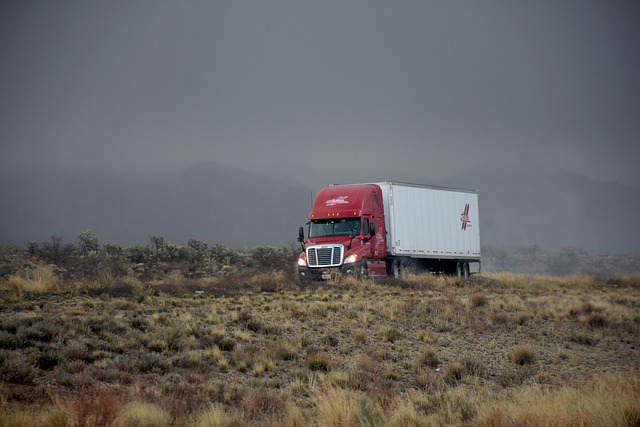For new truckers, securing appropriate new trucker insurance with affordable startup coverage is vital for protection and financial security. This includes liability insurance, cargo insurance, and physical damage policies tailored to their needs as first-time operators. By prioritizing safety practices like regular vehicle maintenance, they can significantly reduce insurance premiums. These measures ensure beginners are protected while building their trucking business with comprehensive trucking business insurance.
As a newly minted trucker, navigating the world of insurance can seem daunting. But understanding your needs and implementing robust safety practices can significantly lower your premiums. This comprehensive guide is designed to help first-time operators like you secure affordable startup coverage, including essential liability insurance for novice drivers, cargo insurance for beginners, and tailored physical damage policies. By embracing these strategies, you’ll not only safeguard your trucking business but also enjoy more manageable insurance costs.
Understanding Your Insurance Needs as a New Trucker

For a new trucker entering the industry, understanding your insurance needs is crucial for financial protection and peace of mind. As a first-time operator, it’s essential to recognize that your requirements differ from experienced drivers or established trucking businesses. This means securing not only liability insurance, which protects against potential damages caused during operation, but also cargo insurance for beginners—ensuring the safety and value of your goods. Physical damage policies should be considered as well, tailored to cover any accidents or incidents involving your vehicle.
Affordable startup coverage is vital for new truckers who want to avoid financial strain early on. Tailored coverage specifically designed for first-time operators can help lower insurance premiums while ensuring comprehensive protection. Remember that as a novice driver, your focus should be on learning the ropes and building a safe, reliable record—and having the right insurance policy supports this journey by providing an added layer of security.
The Role of Safety Practices in Lowering Premiums

Safety practices play a pivotal role in lowering insurance premiums for both first-time drivers and established truckers alike. By implementing robust safety measures, individuals and trucking businesses can significantly reduce risks, which is music to the ears of insurance providers. These practices extend beyond basic training and include regular vehicle maintenance to ensure they’re in optimal condition, thereby minimizing the chances of accidents or damage to cargo.
For first-time operators seeking new trucker insurance or affordable startup coverage, prioritizing safety from day one can lead to substantial savings on liability insurance and cargo insurance policies. Physical damage policies tailored for new operators consider their reduced experience and driving history, offering more competitive rates. Similarly, established trucking businesses can further negotiate better terms by demonstrating a strong track record of safe operations through regular reporting and continuous improvement in safety protocols.
Types of Coverage for Beginners: A Comprehensive Guide

For first-time truckers looking to get their business off the ground, understanding various types of insurance coverage is essential. New trucker insurance often starts with a combination of several key policies designed to protect both the driver and the company from potential risks unique to the trucking industry. Liability insurance is crucial for covering costs related to accidents or damage caused to others’ property or individuals, protecting against substantial legal fees and settlements.
Next, cargo insurance safeguards against losses incurred during transit, ensuring compensation for damaged or missing cargo. Physical damage policies safeguard the truck itself from perils like collisions, natural disasters, and vandalism. For those seeking affordable startup coverage, tailored packages designed specifically for new operators can offer a balance between comprehensive protection and reasonable premiums. Such packages often include comprehensive general liability (CGL) insurance, which combines property damage and personal injury liability into a single policy, making it easier to manage and afford for fledgling trucking businesses.
Strategies to Secure Affordable Trucking Business Insurance

For new truckers or those looking to secure affordable trucking business insurance for the first time, several strategies can help lower premiums. One key approach is to focus on comprehensive coverage that includes both physical damage policies and liability insurance. Physical damage policies protect against loss or damage to your vehicle, while liability insurance covers costs associated with accidents involving other vehicles or property. Tailoring this coverage specifically to meet the needs of new operators can prevent unnecessary expenses and result in more affordable rates.
Additionally, beginners should consider obtaining cargo insurance to safeguard against potential losses during transit. This type of insurance is crucial for first-time drivers who may not yet have a proven track record, as it demonstrates a commitment to protecting valuable cargo. Beyond these core policies, new truckers can explore tailored coverage options that align with their specific business requirements, ensuring they pay only for what they need while enjoying enhanced protection.
For new truckers looking to navigate the world of insurance, adopting robust safety practices is a powerful strategy for achieving affordable rates. By prioritizing safety, you can significantly lower your premiums while ensuring comprehensive protection for your trucking business. Remember, understanding your coverage needs as a first-time operator and choosing tailored policies for physical damage and liability insurance are essential steps towards securing competitive startup coverage. With the right strategies in place, you can hit the road with peace of mind and a robust risk management plan.
